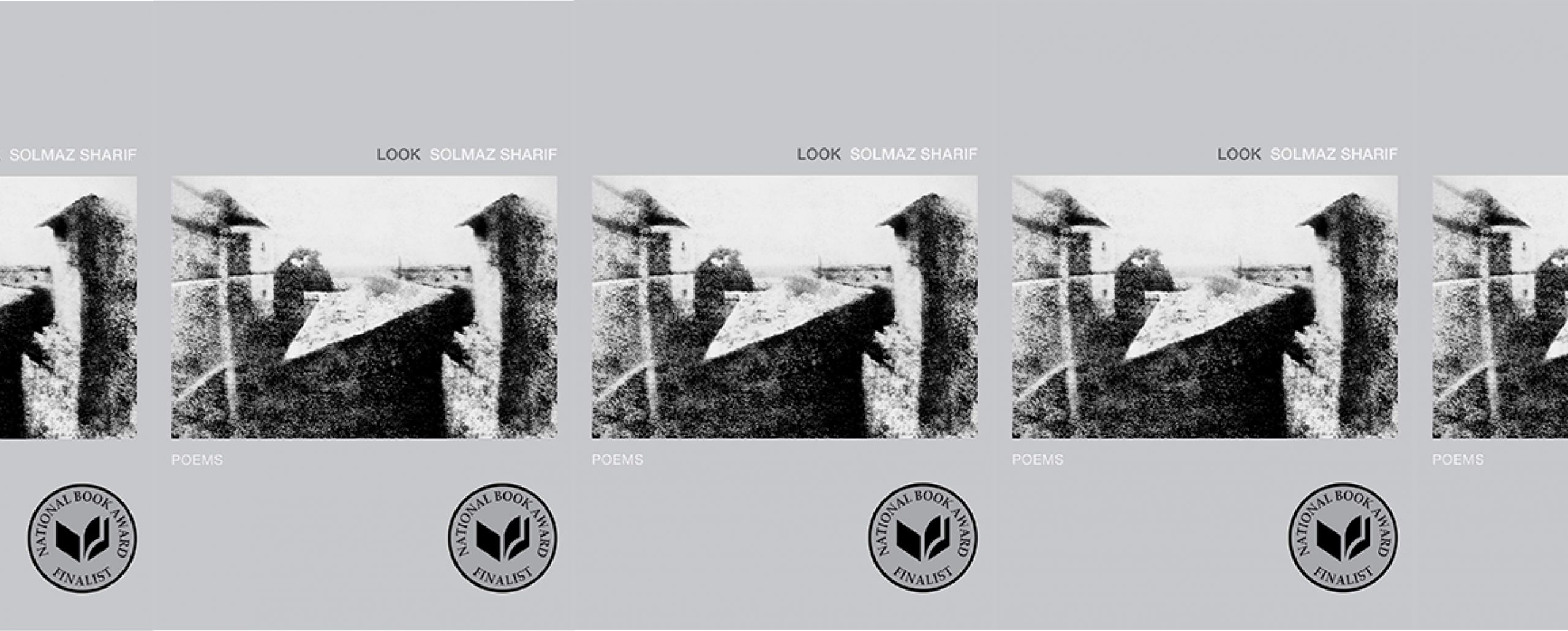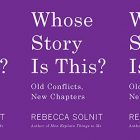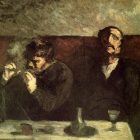Solmaz Sharif’s Look and the Reclamation of the Stories of Those Redacted and Erased

Solmaz Sharif’s 2016 poetry collection, Look, gets its name from the Dictionary of Military and Associated Terms created by the United States’s Department of Defense. It defines the word look as: “in mine warfare, a period during which a mine circuit is receptive of an influence.” How Sharif uses the Dictionary’s definitions across her collection has been written about brilliantly; less covered, but further proof of her immense talent, is that while she tackles huge subjects like the United States’s erasure of people of color, she also is able to write about the personal. Look, for example, doesn’t just refer to the literal landmines that her relatives and her people had to avoid during warfare; the word also states what she hopes her audience does—she asks us to look at the people governments have redacted, the people that wars have erased, her people—and labels a simple act she undertakes herself as she looks at a photo of her uncle and tries to understand someone who was killed in a war that occurred before she was even born.
Sharif has described her poetry as “political” and “documentary.” While her poems tackle large subjects that resonate with and concern large populaces, you can also see the power of the personal in her work. In fact, it is her personal journey in Look that makes the collection universal: the closer you get to a subject, the more universal it becomes.
We see Sharif’s journey clearly in the poem “Dependers/Immediate Family,” which Sharif dedicates to her uncle, Amoo. In the poem, Sharif writes directly to her loss: “I am older than you’ll ever be,” she says. She recounts the first time she heard the story of how her uncle needed to be identified after he was killed during the Iran-Iraq War. She writes, “I imagine my father // looking into your cool face / the difficult work of his knees // staying locked in that frozen place.” Sharif’s poems show not only the dead as frozen, but the survivors as well. Neither can grow with their loved ones, which results in the erasure of the stories of both the dead and the living.
“Personal Effects” explores Sharif’s understanding that she needs to reclaim her uncle’s story. From the poem’s very title, she demonstrates our ability to change the definitions of terms used by the military; she wants to see if she can do the same for her uncle. Across the poem, however, it becomes clear that Sharif, even though she has never met him, has inherited some of his trauma. She can’t get him, and the heinous death he suffered in a violent war, out of her head. “I sat rolling little ears of pasta off my thumb like helmets,” she writes. The poem opens, “I placed a photograph of my uncle on my computer desktop, which means I learn to ignore it.” The picture, the memory, haunts her. It bleeds into her everyday life. “I burn my finger on the broiler / and smell trenches, my uncle,” she says. But thinking of just the war, just the death, is freezing her uncle into someone who just died—not a person who lived life, who experienced love, who felt joy. This is not her uncle’s story.
Later in the poem, Sharif talks about how the government is “building a museum / for the martyrs. / Some metal shelf / a white archival box.” But she will not let the government define her uncle by his death. “I am attempting my own // myth-making,” she writes. “He didn’t want to have / anything // to do with it.” Sharif, like so many who survive wars and exiles, doesn’t have as much knowledge as she wants of her uncle. The closest she can get is by writing this poem, allowing Amoo to be more than just part of a museum, more than just a story that gets hushed when his family is too hurt to talk about it—allowing him to keep defining his life.
But this work isn’t purely healing. “According to most / definitions,” Sharif writes, “I have never / been at war. / According to mine, / most of my life / spent there.” Sharif has inherited trauma and pain from the death of Amoo, and so have many people in her community. “The enlarged ID photo above her mantel / means I can know Amoo, / my dear COLLATERAL DAMAGE, // as only a state or a school might do,” she says. With these lines, we see the range of emotions that Sharif is experiencing as she writes. She feels a sense of happiness and love when she first sees her uncle’s photo, but, with the line breaks and the last line on the page making up its own stanza, we see the distance she feels from Amoo, how she knows him like you would know a photo of a soldier you’d see in a museum, framed as if he was only a soldier. This distance is pain, and trauma, and erasure.
Sharif’s poetry has her questioning what Amoo was thinking and doing when the photo was taken. She starts a section of one poem, “I write him daily,” which carries the meaning of writing and waiting for someone, but also the writing of a life for him, so that he can live on in some small way, despite what his government and his government’s war’s have done to him, to his family, to his peoples. Sharif knows how important this is—she ends the section, “And I place between us the looking and the telling they want dead.” The more people like Amoo live on, the more we understand the cost of war and how little it does for us.
Sharif’s poetry collection accomplishes so much, from the aesthetics to the definitions that she morphs and manipulates, to the politics. But it all comes back to the reclamation of stories, the reclamation of lives. When you’re Iranian, when you come from oppressed peoples, your body is politicized; your life is politicized. And the losses are many. The only way she can fight back against the erasure, bleed through the redactions, is by reclaiming her and her family’s lives, by redefining how not only the outside world synthesizes their stories, but herself, too.



